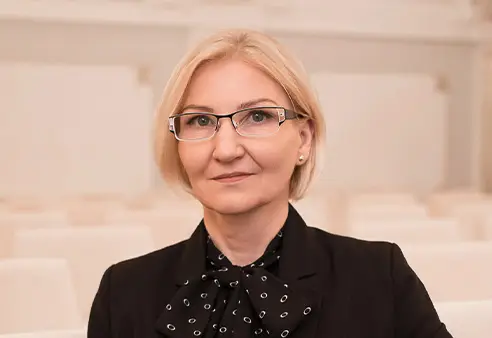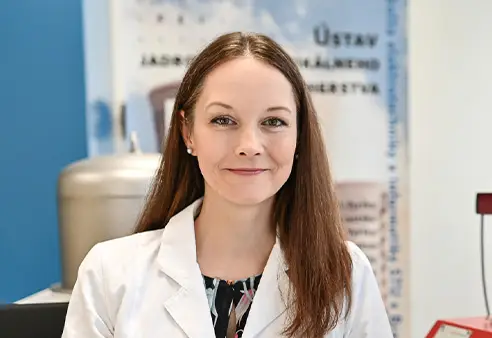Prof. MUDr. Alexandra Bražinová, PhD., MPH, works at the Faculty of Medicine, Comenius University in Bratislava, as the head of the Institute of Epidemiology. Her scientific research focuses on the epidemiology of infectious and non-communicable diseases. She continually augments her research and lecturing by implementing her experience from research directly into her teaching.
In addition to her pedagogical work, she is continuously engaged in several scientific projects. During the pandemic, she actively participated in research into the occurrence of, and attempts to overcome, COVID-19 in the Slovak population. In the field of epidemiological research, together with her colleagues, she determined the levels of antibodies in people who overcame the disease and thus helped to map the extent of the virus’s spread and, for example, how many people were already immune and how the further spread of the disease could be predicted. She is currently involved in a research project aimed at improving the diagnosis of a disease caused by the bacterium legionella, which causes severe pneumonia. As part of long-term monitoring and research into legionella, she wants to introduce new, more advanced diagnostics. In addition, Professor Bražinová has been involved in the epidemiology of mental disorders for a long time. In several research projects with doctoral students and other collaborators, they map the incidence of suicide rates in individual population groups in Slovakia and the incidence of mental disorders in the Slovak population. Several outputs of the research that Professor Bražinová conducted or participated in directly is improving the prevention or treatment of specific diseases.
Alexandra Bražinová hails from Bratislava and received her degree at Charles University in Prague, at its Third Faculty of Medicine. During her studies, she spent one year doing her internship in medicine at Duke University in North Carolina, USA. After graduating from Charles University, she moved to George Washington University in Washington, D.C., where she took Master of Public Health courses. She gained further experience in the United States with a third postdoctoral research fellowship at the University of California in Berkeley.
As part of her professional career, she has changed her workplace several times. For several years she worked at the Ministry of Health in foreign relations, where she was part of international projects. Subsequently, she worked at a research foundation in Vienna, focusing on the epidemiology of brain injuries. Then Professor Bražinová moved to Trnava, where she taught epidemiology to public health students for ten years. After this experience, she transferred to the Faculty of Medicine at Comenius University in Bratislava, where she is the head of the Institute of Epidemiology.
Even though Professor Bražinová's father was a university teacher, she claims she got into teaching by chance. "My first role models in being a public speaker and giving information to other people were my colleagues in research. Many of them were my inspiration. So far, I'm still learning how to be the best teacher. Teaching is an art. It is not enough to have knowledge and skills, but also to be able to correctly pass on information, attract the student and make sure that they understand the subject."
She also appreciates minor achievements in pedagogical activities, which take place daily, such as the fact that her students understand the subject, like her way of teaching, or actively discuss the subject. In general, Professor Bražinová feels fulfilled by the opportunity to implement her experience in the field of science into teaching. Her vision is to set the teaching of epidemiology at the Faculty of Medicine of Comenius University so that graduates acquire key knowledge and skills in epidemiology and can follow scientific evidence in their medical practice.
She would like to introduce the teaching of social skills for primary and secondary school pupils into the Slovak education system. In her opinion, universities in Slovakia are behind when it comes to teaching and training teachers how to teach correctly and effectively.
And what qualities should a good educator have, according to Professor Bražinová? "They should be good experts in what they teach and simultaneously passionate about the field in which they specialise. In addition, they should know how to teach, because there is a big difference between being an expert in something with knowledge and experience, and being able to pass these on and impress the students."



